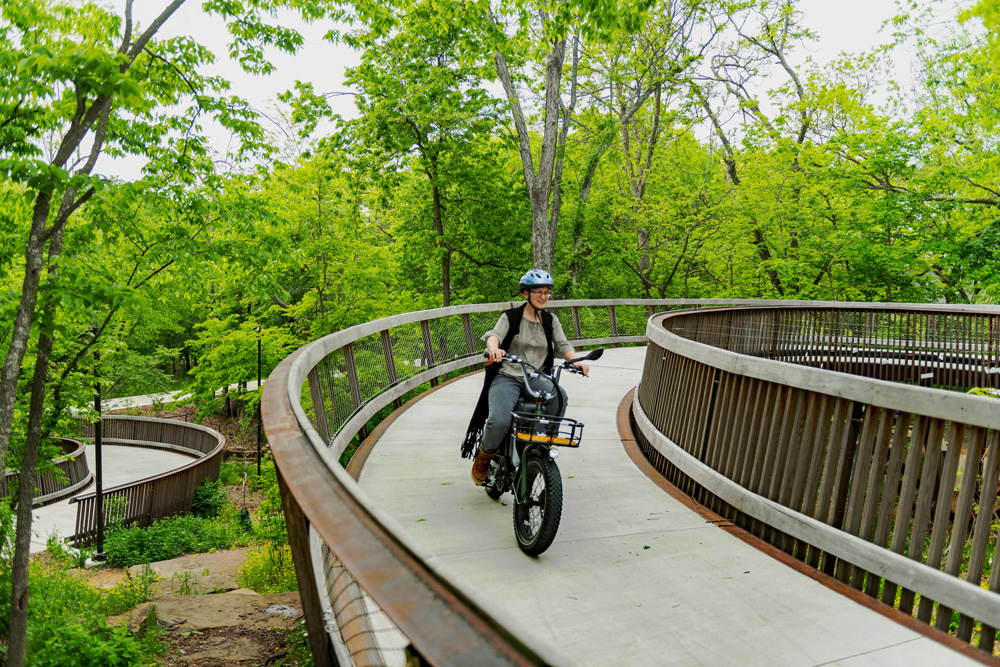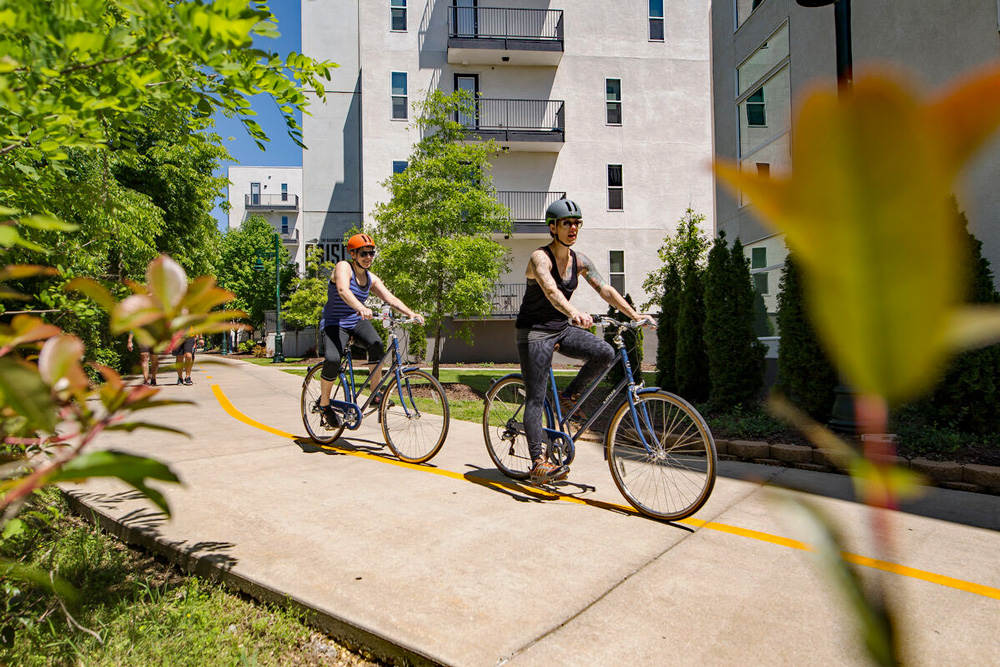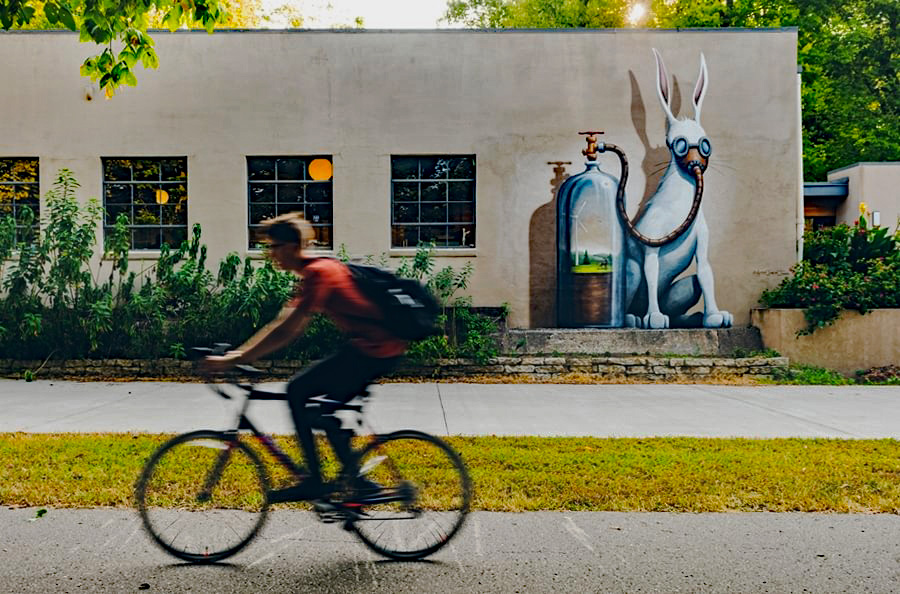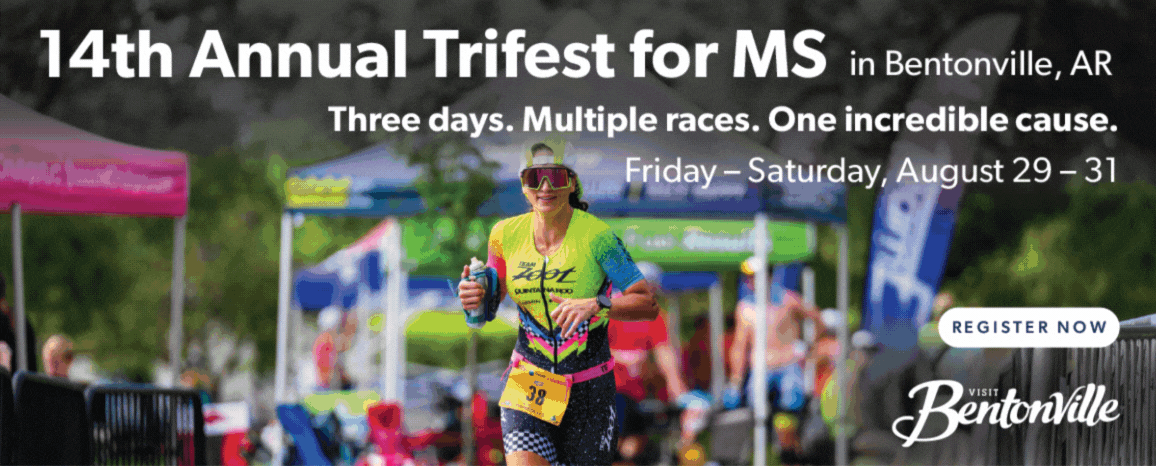Fayetteville, Arkansas, has pedaled its way to the forefront of American cycling cities, earning a prestigious Gold-level Bicycle Friendly Community (BFC) designation from the League of American Bicyclists in the fall of 2022. This recognition marks the culmination of a dedicated, multi-decade effort to transform the city into a haven for cyclists, making it the first and only city in Arkansas to achieve this top-tier status.
The journey to Gold has been a steady climb for Fayetteville, reflecting a long-term vision and commitment to integrating bicycling into the fabric of the community. The city’s relationship with the League of American Bicyclists’ BFC program began in 2008 with an Honorable Mention. This initial acknowledgment served as a catalyst, spurring further investment and planning that led to a Bronze designation in 2010. As the city’s network of trails and bike-centric policies expanded, so did its recognition, achieving Silver status in 2016 before reaching the Gold-level milestone.
This ascent from a mere mention to a gold-standard model is a testament to Fayetteville’s comprehensive and sustained approach to fostering a vibrant cycling culture. The city’s success is not the result of a single project, but rather a multifaceted strategy encompassing infrastructure, education, and community engagement.
“It really started with a vision,” said Dane Eifling, Mobility Coordinator for the City of Fayetteville. “The city’s first active transportation plan dates back to the early 2000s, and from there, each administration has helped push the program forward.”

One of the most significant developments came in 2005, when the city created an in-house trail construction crew. Supported by city leadership and sales tax allocations, this nine-person crew was charged with building and maintaining multi-use paths. According to Matt Mihalevich, Active Transportation Manager, this move was Fayetteville’s “secret sauce.”
“Having a dedicated trail crew set us apart,” Mihalevich explained. “They work year-round to expand and maintain our network. It’s not something most cities do, but it’s been a game-changer.”
In 2006, Fayetteville voters approved $2.1 million in local funding to jumpstart the city’s trail development efforts, demonstrating strong community support for active transportation and outdoor recreation. This investment led to the 2008 opening of the Frisco and Scull Creek Trails, which together formed a vital north-south corridor through the heart of the city. These trails laid the groundwork for what would become the Razorback Regional Greenway, serving as early anchors in the 36-mile shared-use path that officially opened in 2015, connecting Fayetteville to Bella Vista and linking six cities across Northwest Arkansas.
The city’s infrastructure growth has been guided by its Active Transportation Plan (ATP), which was last updated in 2015. This comprehensive blueprint has helped Fayetteville build a system where over 80% of residents now live within a half-mile of a paved trail. The goal is 100% by 2040.
While trail development is central, Fayetteville’s progress has also been fueled by policy and community initiatives. The city requires developers to build trails in accordance with the ATP, often leading to network expansions tied to new housing and commercial projects. An advisory group, the Active Transportation Advisory Committee (ATAC), meets monthly to provide public input and help prioritize projects.
“We get real feedback from the community through ATAC,” said Eifling. “They also review crash data and help us keep safety top-of-mind.”
Fayetteville’s vision isn’t limited to recreational riders. In fact, city leaders have focused on making everyday transportation safer and more appealing for all ages and abilities. That includes traffic calming, speed limit reductions, and separated bike infrastructure along busy streets. Recent work with the Arkansas Department of Transportation (ARDOT) has even resulted in protected paths along interchanges and state highways.
“We follow the NACTO All Ages and Abilities design guide,” said Mihalevich. “That helps us match infrastructure to road conditions and really focus on comfort and safety.”
Community engagement also plays a vital role. From family-friendly events to the bicycle-friendly business program—which currently counts over 50 certified businesses—Fayetteville is committed to normalizing cycling as a part of everyday life. Eifling, who helped launch the business certification boot camps, emphasized the importance of local buy-in.
“We’d sit down with business owners, walk them through the application, and make sure they get their application submitted to earn their award,” he said. “It’s about building a culture.”

The payoff has been both local and global. In 2021, the Union Cycliste Internationale (UCI) named Fayetteville a “Bike City,” a rare honor shared with global capitals like Copenhagen and Paris. The designation highlights the city’s commitment to cycling infrastructure and education as well as its ability to host major cycling events.
Despite the accolades, city leaders stress that the journey isn’t over. “Gold is great,” Eifling said, “but we’re aiming for Platinum. That means increasing our mode share and making cycling viable for more types of trips.”
From its humble beginnings as an honorable mention to its current status as a Gold-level Bicycle Friendly Community, Fayetteville’s story is one of dedication, strategic planning, and a genuine passion for the power of the bicycle. The city’s journey offers a compelling blueprint for other communities across the nation, demonstrating that with sustained effort and a clear vision, the path to becoming a truly bicycle-friendly city is not just a dream, but an achievable reality.
What is a Bicycle Friendly Community?
The League of American Bicyclists’ Bicycle Friendly Community (BFC) program is a national initiative that recognizes cities and towns for their commitment to creating safer, more accessible, and more welcoming environments for bicyclists. The program evaluates communities based on a comprehensive set of criteria organized into five categories—engineering, education, encouragement, enforcement, and evaluation/planning—often referred to as the Five E’s. Communities that demonstrate significant achievements in these areas can earn recognition at the Bronze, Silver, Gold, Platinum, or Diamond levels. The BFC program not only celebrates progress but also provides a roadmap for communities aiming to improve cycling infrastructure, promote active transportation, and enhance quality of life for residents and visitors alike. Rankings are updated every two years.
Arkansas is home to several communities recognized by the League of American Bicyclists for their efforts to support and promote bicycling. While Fayetteville stands out as the only Gold-level Bicycle Friendly Community in the state, a designation it has held since 2022, reflecting years of investment in infrastructure, programs, and policy. At the Silver level, Bentonville, Conway, and the broader Northwest Arkansas region, which includes communities in Benton and Washington Counties—have all been recognized for their significant strides in creating safe, connected cycling environments and fostering a strong biking culture.
At the Bronze level, Arkansas features a growing list of communities that have made notable progress. Little Rock earned its Bronze designation in 2020, acknowledging the capital city’s work to improve bicycle access and safety. North Little Rock and Springdale also hold Bronze status, showing that urban areas across the state are increasingly prioritizing cycling as a means of transportation, recreation, and community development. These designations not only celebrate current achievements but also serve as a roadmap for future improvements.
Photos for this article are courtesy of Experience Fayetteville.
This article was originally published on ArkansasOutside.com, your trusted source for outdoor news and updates in The Natural State. Unless otherwise credited, all photos included in this piece are the property of Arkansas Outside, LLC. We take pride in sharing the beauty and adventures of Arkansas through our lens—thank you for supporting our work!






